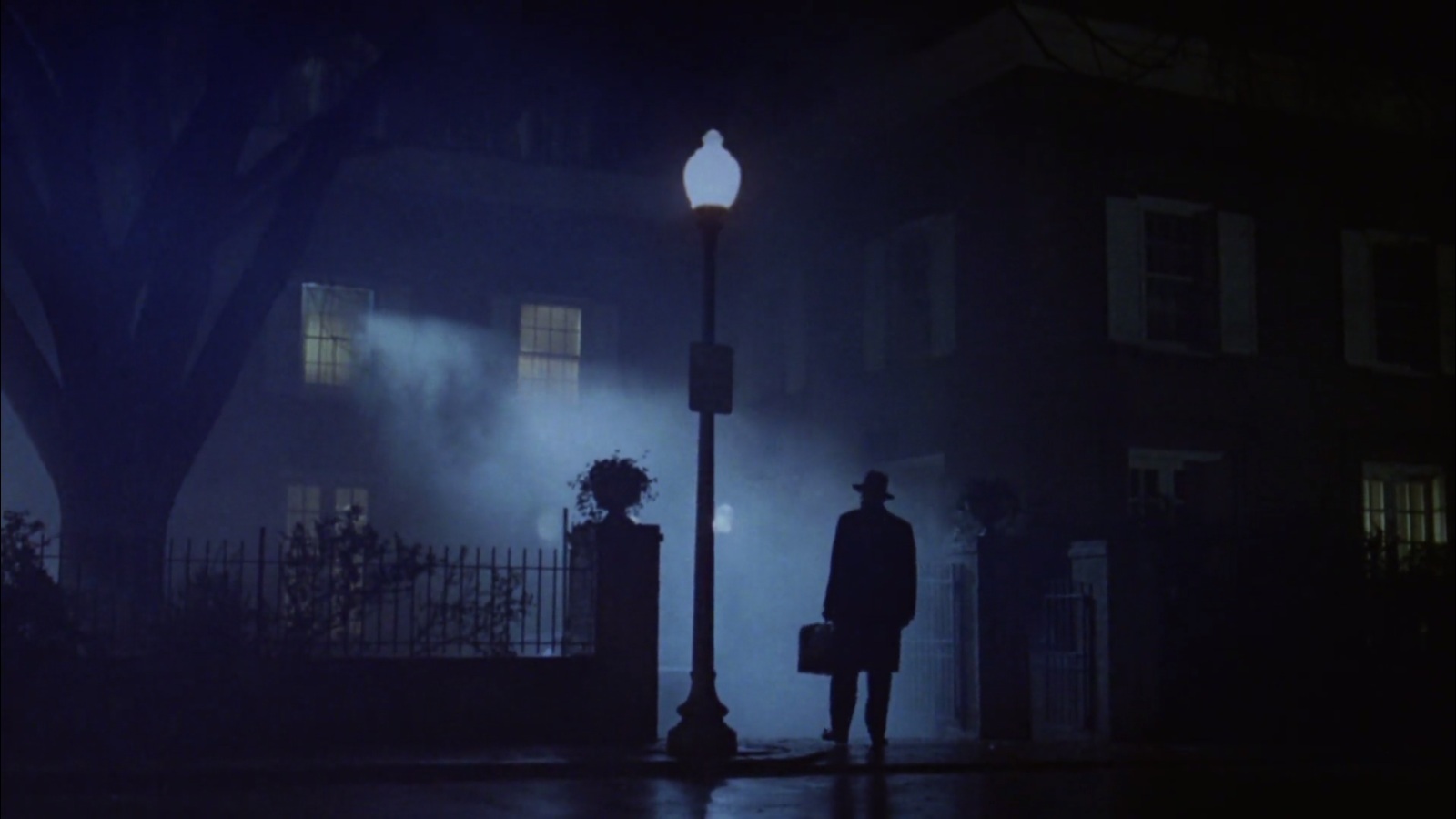
The Exorcist is a 1973 horror film written by William Peter Blatty (based on his novel) and directed by William Friedkin. The film stars Ellen Burstyn as Chris, a single mother whose daughter Regan (Linda Blair) is possessed by an evil entity. In an act of desperation, she turns to a psychiatrist and priest named Father Karras (Jason Miller), demanding that he perform an antiquated Catholic ritual called an exorcism. With the help of seasoned exorcist Father Merrin (Max von Sydow), Father Karras successfully saves the possessed child, but at a dreadful cost.
Please note that this review will feature spoilers for The Exorcist.
A Man of Science, A Crisis of Faith
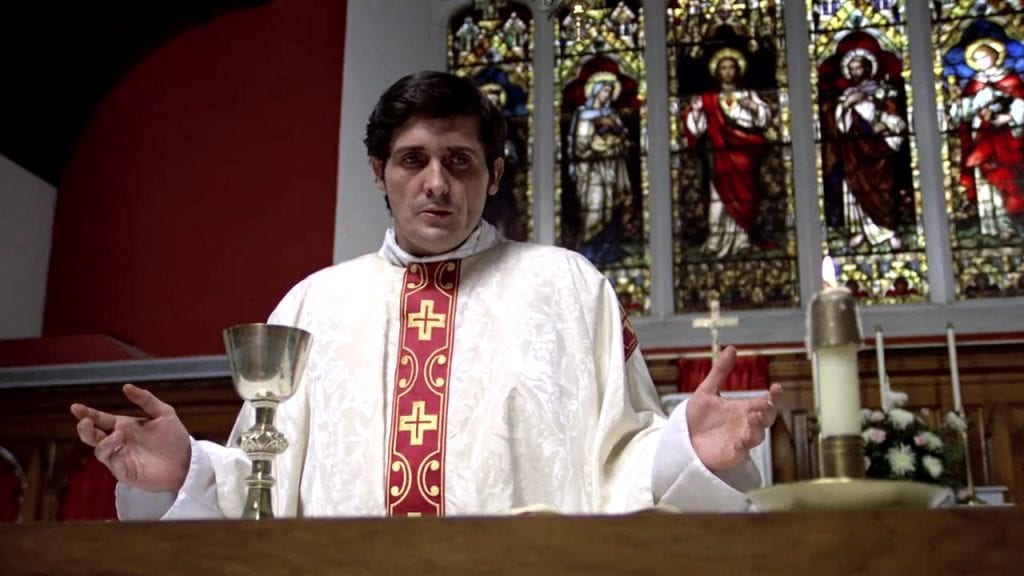
At its core, The Exorcist is about the clash between science and faith. Father Karras is a personification of this timeless struggle. He is a priest who studied medicine at Harvard and Johns Hopkins, and serves as the psychiatric counselor at St. Mikes in Georgetown. At the beginning of the film, Karras meets with a superior, asking for reassignment. He says he has no issue with helping his charges as a psychiatrist, but he claims to be unfit to help them spiritually. He suffers from a crisis of faith.
When Karras first meets Chris, she asks him how a psychiatrist came to be a priest. He corrects her, informing her that Church sent him to medical school. He was a man of faith first, and a man of science second. Yet, when Chris asks for his help as a priest, Karras recommends medical treatment instead.
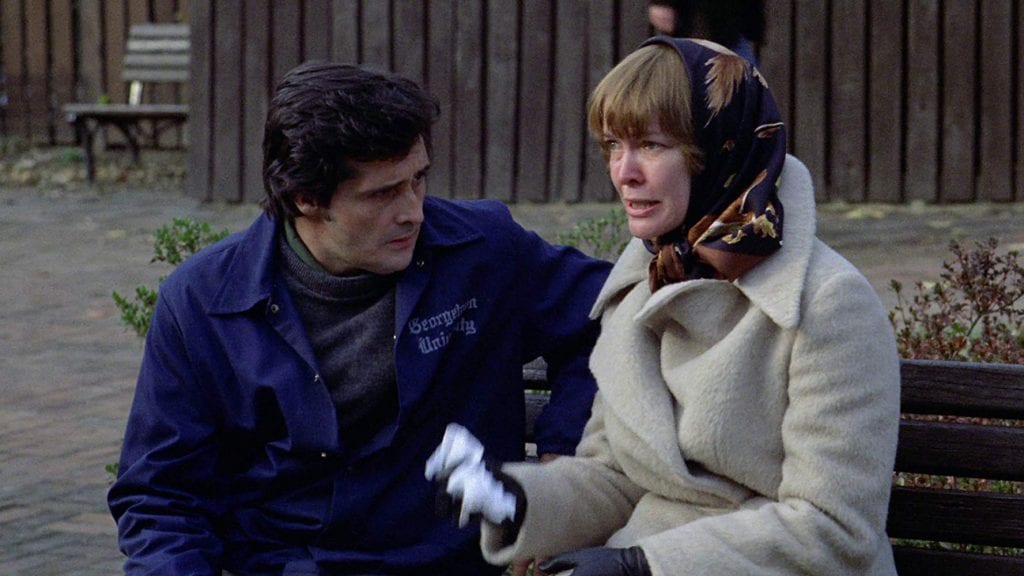
We never learn exactly what caused Karras’ crisis of faith. It could be due to his deteriorating relationship with his mother, or simply attrition. After all, with science and religion so often at odds, it might be difficult for a man of science to maintain a relationship with God. The problem is exacerbated by the understanding that he’s supposed to be a representative for his faith. If Karras, an ordained priest, doesn’t have a relationship with God, how can he be sure anyone actually does?
A Successful Failure
Obviously, the most fascinating aspect of The Exorcist is the exorcism itself. Everyone remembers Max von Sydow’s voice booming, “The power of Christ compels you!” They remember the Lord’s Prayer and the holy water and the layers of vomit-encrusted vestments. What some might forget, however, is that the exorcism ultimately fails.
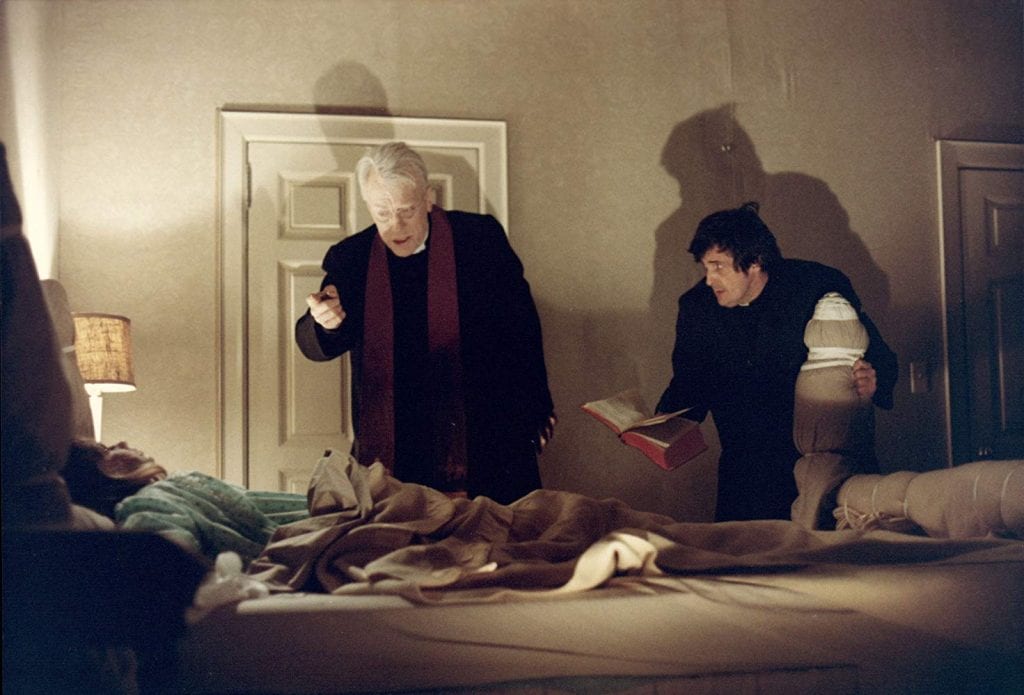
In the chilling final minutes of the climax, Father Karras enters Regan’s bedroom to find Father Merrin’s corpse. He wrestles the child to the floor and physically beats her, screaming at the demon to leave her body and enter him instead. The demon complies, and in a moment of true self-sacrifice, Father Karras hurls himself out the window to his death. Father Merrin doesn’t save Regan. The ritual doesn’t save her, nor does the Catholic church. Karras, the man, saves Regan.
This choice elevates The Exorcist beyond its numerous successors and copycats. The film is sympathetic to all of its characters, and it doesn’t condemn Karras for his lack of faith. In fact, though Regan’s doctors aren’t portrayed in the best light, neither are they treated like uncaring monsters. Everyone, no matter their walk of life, or their relationship to science or religion, cares deeply about Regan’s well-being. And even though Karras doesn’t consider himself a man of faith, he agrees to perform an exorcism when he sees how much Regan is suffering.
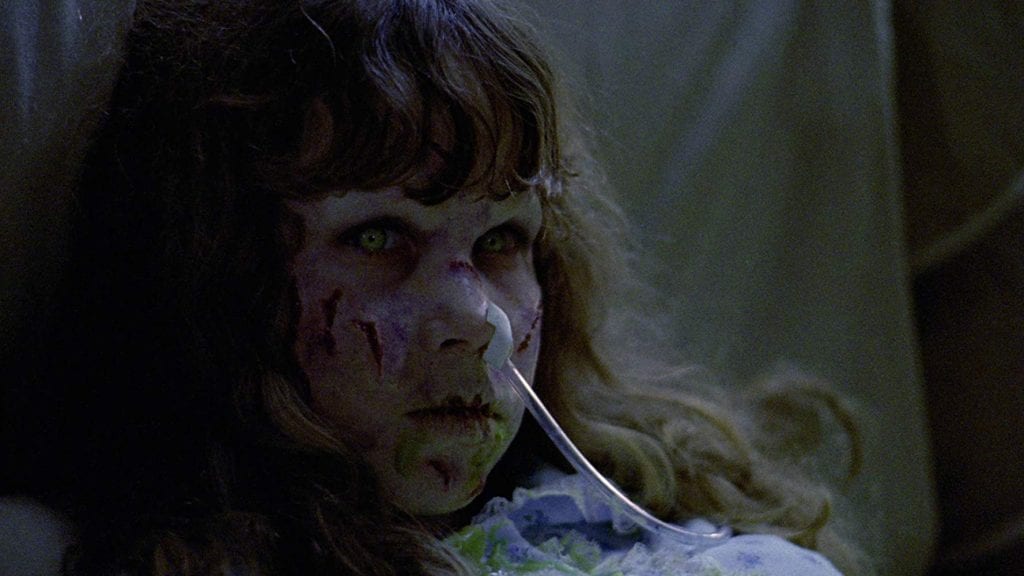
It’s not often that we find a film about the struggle between science and faith where neither side is villainized. Karras, as the emotional core of The Exorcist, represents both sides of the argument. He begins the film with doubts about his faith. Fascinatingly, when he experiences Regan’s possession firsthand, he neither denounces science, nor re-affirms his faith. The Exorcist understands that the human condition just isn’t that simple.
The Story Between the Cuts
The themes of The Exorcist are haunting and complex, and the performances are stellar, but that doesn’t mean that it’s perfect.
The Exorcist is dense. Each scene carefully conveys plot, character, and tone with expert nuance. Not a single moment of the film is wasted. Shots don’t linger, and moments of important dialogue are cut off the moment they end. While this editing style instills each moment with intensity, it also creates an uncomfortable claustrophobia, rather than the intended feeling of dread. Clocking in at an impressive 2 hours and 2 minutes, the film feels bare-bones and occasionally choppy. More importantly, huge sections of story and character development seem to have been lost to the cutting room floor. The Exorcist is one of the few examples of a 2-hour film that should have been much longer.
For instance, Father Karras is introduced to the audience through a series of tragic scenes revolving around his ailing mother. In a particularly heartbreaking sequence, Karras learns that his mother has been committed to a mental institution to save money. He has her released, but she refuses to speak to him.
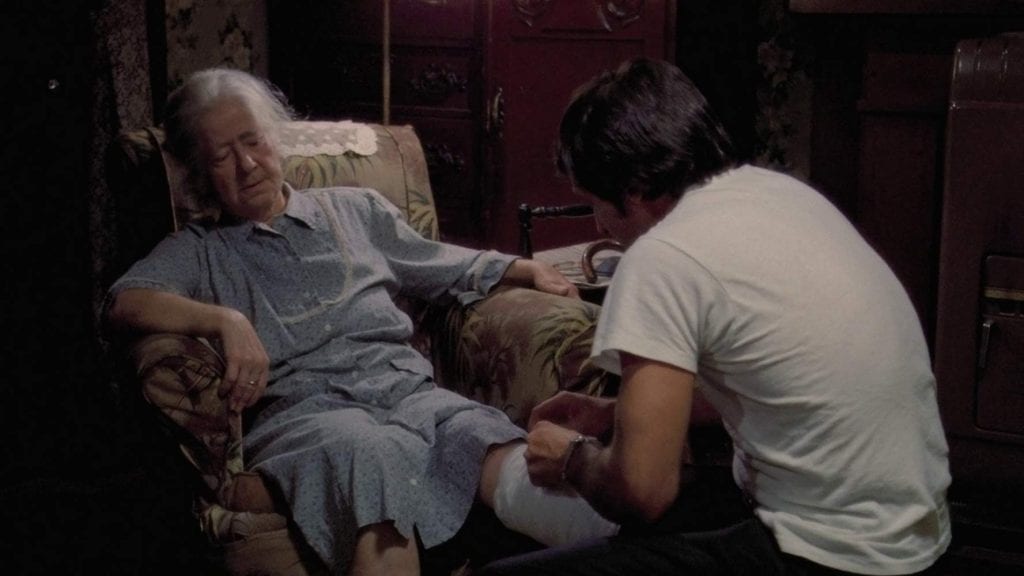
Smash cut to a fancy party sometime later. A moment of passing dialogue reveals that Karras’ mother has since died. We are told through exposition that her body wasn’t found until days later, presumably by Karras. The lynchpin of The Exorcist is Father Karras’ guilt over his mother’s death. So it’s jarring to hear such vital information offered up second-hand from a character who barely appears in the film.
These strange writing and editing elements make for a movie that feels like it’s crawling and racing by at the same time. The tonal whiplash as the film dashes from scene to scene might elicit a feeling of emotional motion sickness.
Final Thoughts
The Exorcist is a classic, in every sense of the word, transcending genre by focusing on the trials and tribulations of its characters. The deliberate pacing of each sequence combined with the harsh editing might be difficult for new viewers. However, The Exorcist’s deep lore and character work make for an intensely rewarding experience.
The Exorcist is about faith, but in a way, it’s also about how inconsequential faith can be. Chris isn’t a believer, but she’s never judged or punished for that. Karras has doubts, but he still prevails through an act of selfless love. This is a human story. Some people of science seek comfort in faith. Some people of faith experience doubt. That’s okay. As long as we remember what’s important, and act with honesty and kindness, does it really matter what our beliefs are?



Recent Comments